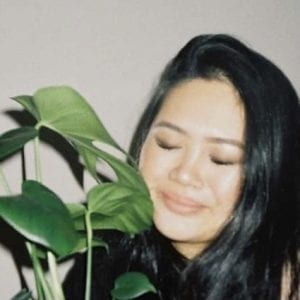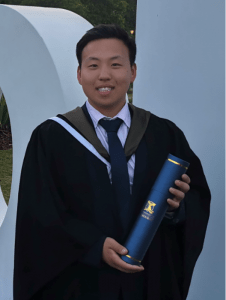
Feature Friday: Einstein a Go-Go
Every year, graduate students from our Science Communication subject choose a SciComm project to work on in small groups. Students work with amazing companies from Zoos Victoria to the Dark Sky Alliance, and everything in between!
One team gets to go on the radio, with the legendary Shane Huntington on 3RRR FM’s Einstein a Go-Go, a show dedicated to science news and stories. And not even Stage 4 restrictions of COVID-19 lockdown could stop them!
The group has been working hard from home, and we’re super excited to announce that our students will be live on air this Sunday from 11am – 12pm!
But who are these students? I’m glad you asked! This Feature Friday, I’d like to introduce you to the brains behind this weekend’s show. Meet our students, as they talk about who they are, what brought them to study SciComm and why the radio is a great place for SciComm:
Leela Calalang
“I’m Leela, a 24 year old Master of Ecosystem Management and Conservation student.
I’m passionate about climate change adaptation in natural resource management.
I think science communication is really important, especially in management contexts. Institutional change can only occur with public support, and science is an important basis for figuring out how to solve NRM problems. I’ve learned that figuring out how to make these ideas accessible for general audiences requires a great deal of empathy.
Radio is a really effective vessel for SciComm because there can otherwise be a lot of barriers to accessing science. Whether overcoming paywalls or too much scientific jargon, good science communication (like Einstein-A-GoGo) on the radio bypasses these barriers while being able to reach a wider audience.”
“I’m a MSc (Ecosystem Science) student researching the ecological processes of headwater streams in greater Melbourne. As an environmental engineer, I’m passionate about creating catchment and cities that are sustainable, healthy and vibrant regions for both the natural environment and the people living in them.
A chatty enthusiast of life, I’m studying science communication so that my work can have greater impact, and I can gain some practice and confidence in new communication styles.
What’s not to love about science on the radio! There’s always incredible stuff happening in the science and technology world. Radio is such a great format to share science updates with a large audience, and in a chatty format that’s a pleasure to listen to. Plus you can have a dialogue between multiple people. Science is constantly evolving, so being able to ask questions and discuss the topics live is a natural way to learn about new topics.”
Follow Steph on Twitter at @ohstephbrown and LinkedIn
“My name is Wayne Du and I am a Masters student, conducting research on muscle physiology in the Centre for Muscle Research at The University of Melbourne. It was during my third year of undergrad where I finally found my passion in physiology, changing my major only days before it was too late.
My passion for science doesn’t stop at muscle biology. It extends into the fields of marine biology and zoology. I’m an animal lover, but keep all spiders away from me!
I first decided to take a science communication course back in March, and to be completely honest, I didn’t know what to expect. Through the teachings of Dr Jen Martin, I began to understand the importance of being able to communicate our research to the broader community, because if we don’t, who does it benefit?
Radio is a platform that reaches the masses. Whether people go to relax or catch up on news, it is a great place to communicate new scientific discoveries and research to a diverse audience. Through conversation and minimal scientific jargon, science communicators can share their research and communicate its most interesting aspects to an interested public.”
Follow Wayne on Twitter at @WayneDu8 on on LinkedIn
We’re incredibly proud of this awesome team and can’t wait to hear them hit the air waves this weekend.

Don’t miss the show this Sunday the 27th of September, 11am – 12pm!
Follow Einstein a Go-Go on Twitter, and listen live or find the podcast on the 3RRR Website
– Written by Rosie Arnold
Categories



